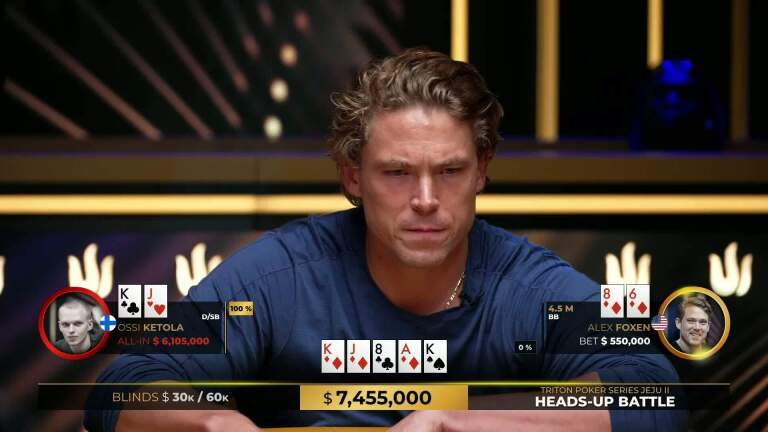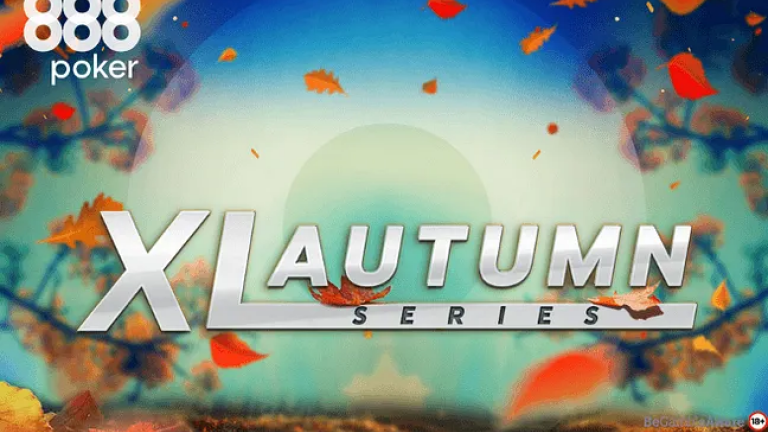Tells in online poker, you haven’t payed attention to
In a poker game, you want to use all the available information to make the best decision possible. Players tend to look for tendencies in Villain's stats, use logic/GTO to find the correct play, etc. However, there is often overlooked information among online poker players; tells. On the one hand, the territory of tells might be tricky. You must read your opponent to avoid getting into a lot of trouble. On the other hand, there are occasions when you gain extra information from such tells.

1. Timing tell
Usually, when somebody is acting very quickly, he has a weak hand. This is because you typically need time to think through a bluff or consider how to get value from your strongest hands. Of course, some players decide their actions regardless of the runouts, but the average player acts quickly with hands that are good enough to call, for example, but nothing more.
Quick acts also imply our next category. When someone is on tilt or emotionally frustrated, he tends to act based on gut feelings. He is chasing the loss, closing the hand quickly when he has an uncomfortable (i.e. middle strength hand) spot. They just want to get over it and have a spot where they can win big.
2. Tilt
It's crucial to recognize when someone is on tilt. You can win more against those who risk more when chasing loss or making bad decisions more often.
How do you recognize the fact that someone is tilting? First, you must pay attention to what's happening at the table even if you are not involved in a hand. There will be clear signs, such as; a player starting to chat, using vulgar language, provoking others, etc. This is especially true when someone loses a big pot or several in a short period of time. Also, it's a clear sign when a player introduces huge preflop sizes. I'm not talking about when someone adjusts to a worse player and exploits that guy by sizing up. You'll notice by the sizes and frequencies of betting (and the quickness of these acts) that a player is frustrated.
Or some combination of all of the above. The easiest to notice this state in regular players, who mostly play solid strategies.
3. Multi-tabling
If Villain plays on various tables, you can draw some conclusions; first, they are most likely regulars. The more tables they have, the more confident your read will be. Second, they won't have enough time to think through tricky spots. The lower the stakes, the more the chance that these players are inexperienced in several spots.
Even if you don't have stats on them, you can assume they will bluff less and probably fold more than they should. So you can overfold to their aggression in a spot where there are no natural bluffs. And vice versa, you must put them into tough spots when they show weakness.
4. Unusual bet sizes
We're talking about unusual bet sizes when using a particular sizing makes little or no sense. So be careful what conclusion you draw. Just because you don't understand a sizing doesn't automatically mean it makes no sense. Also note that a recreational could use any bet sizing without any meaning, so you should focus on this factor when facing regular players.
Under unusual bet sizes, I'm referring to two extremities of betting small or overbetting. It frequently happens that a bad runout ruins a specific hand (for example, a two-pair-type hand). Let's say a flush and a straight has completed on the river. It would be best if you didn't use small sizes here, since you'd bet a polarized range. With your nutted hand, you want to win big, and with your bluffs, you target middle-strength hands to fold (i.e. giving an odds where it's indifferent if they call or fold). So by betting small, you represent exactly your hand strength. Still, you will see this mistake quite often by small-stakes regulars. You only need to fold more if you are beaten or bluff them off their weak showdown hands.
The example above is about betting only the weak part of the range with a specific sizing. However, the opposite is also recurrent. Overbet sizes are often misunderstood as well. Players who utilize overbets will generally bet all their strong value hands with this sizing. Only they forget (or don't know) to put bluffs next to them. Sometimes, inexperienced players use overbets in spots where it's technically incorrect to introduce such a size. They don't realize when it makes zero sense or can only mean a super strong hand. In these cases, you must be extra careful and overfold the hands you would call a standard sizing.
5. Posting blinds and straddling
The last online tell we discussed today is posting blinds out of turn. Regulars try to maximize their EV in all cases. So it's implausible to see someone paying an "extra" blind by posting the Big Blind out of turn.
Some sites offer to add extra bets, such as straddles which change the table's whole dynamic. As a result, positions get twisted, the stack-to-pot ratio is lowered, etc. Factors that a regular player doesn't really want to add to the game unless they've studied strategy profoundly and they have an edge. Usually, this is not the case.
So, we can conclude that a player who posts blinds out of turn and adds straddle is most likely a recreational or very impatient player. Therefore, we need to adjust our game according to this information.
Summary
Now you know that tells are not only restricted to live games but also present in online games. We discussed here to pay attention to the table even if you are not involved in a hand to pick up these tells. If you notice someone acting quickly or is very likely on tilt, you need to adjust your play to their weak ranges. Multi-tabling will often involve more straightforward plays. Against these players, try to fold more often your marginal hands and attack their unprotected check ranges. Then pay attention to unusual bet sizes, which carry a lot of information, and you need to respond accordingly. Lastly, notice recreational and impatient players who post extra blinds or like to straddle.
Keep in mind that not everything is what it seems. Tells are very helpful in several spots but always take this kind of information with a grain of salt. To draw the correct conclusion, you must understand the situation and your opponent's style, too.
Good luck in picking up tells in the online world!














0 comments